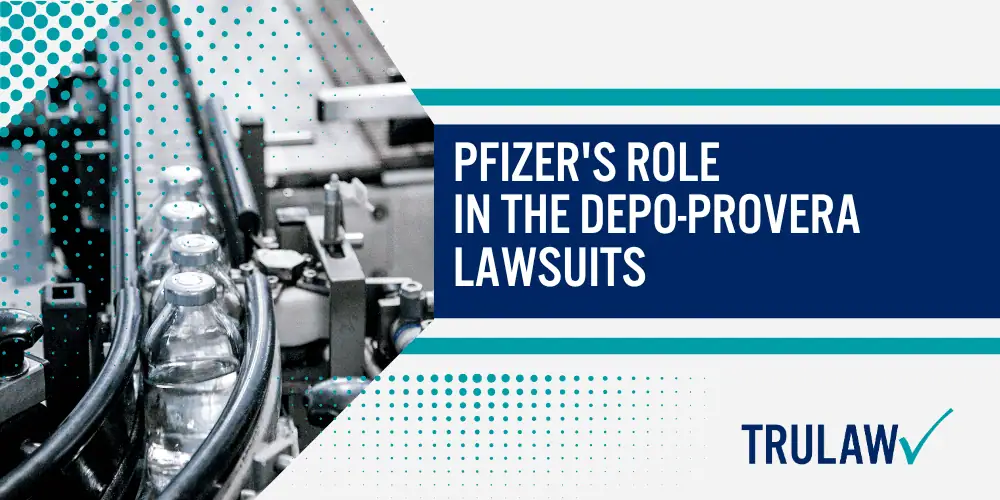As the pharmaceutical giant behind Depo-Provera, Pfizer stands at the center of mounting legal scrutiny over alleged links between their injectable contraceptive and brain tumors.
The company acquired the medication through its merger with Pharmacia in 2003, inheriting both the product’s profitable market position and its growing safety concerns.

Lawsuits nationwide claim Pfizer prioritized profits over patient safety by maintaining different warning standards across global markets.
Manufacturer Liability and Legal Claims
Pfizer, as the primary manufacturer of brand-name Depo-Provera, faces significant legal challenges in the growing meningioma litigation across the United States.
Under strict liability, Pfizer had a legal obligation to ensure their product was reasonably safe and to provide adequate warnings about known risks regardless of their level of care.
Plaintiffs allege Pfizer knew or should have known about the increased meningioma risk associated with Depo-Provera’s active ingredient, medroxyprogesterone acetate, based on scientific evidence dating back decades.
The litigation focuses heavily on Pfizer’s alleged failure to warn U.S. patients and healthcare providers about meningioma risks, despite providing such warnings in other countries.
Legal documents claim this differential treatment of warning labels shows conscious disregard for U.S. patient safety.
These cases may expose Pfizer to substantial financial liability given the severity of brain tumors and the large number of women who have used Depo-Provera since its FDA approval for contraceptive use in 1992.
Regulatory History and Pfizer’s Response
The FDA initially denied approval for contraceptive use in 1972 due to safety concerns but eventually approved it in 1992, decades after its introduction for other medical purposes in 1959.
In 2004, the FDA required Pfizer to add a black box warning about bone density loss with long-term use, but no similar warning was mandated for meningioma risks despite growing evidence of a connection.
Pfizer has included meningioma warnings on Depo-Provera packaging in the European Union, United Kingdom, and Canada for nearly a decade.
The European labels specifically advise patients with a history of meningioma to consult with their doctors before using the product.
In response to recent lawsuits, Pfizer has presented a preemption defense, claiming they attempted to update U.S. warning labels to include meningioma risks, but the FDA rejected these proposed changes due to insufficient evidence.
This defense aims to shield the company from liability by arguing that federal regulatory decisions override state-level failure to warn claims.
Critics note the company has not used the FDA’s Changes Being Effected (CBE) process to unilaterally add these warnings to U.S. labels, despite having the authority to do so for newly discovered risks.





